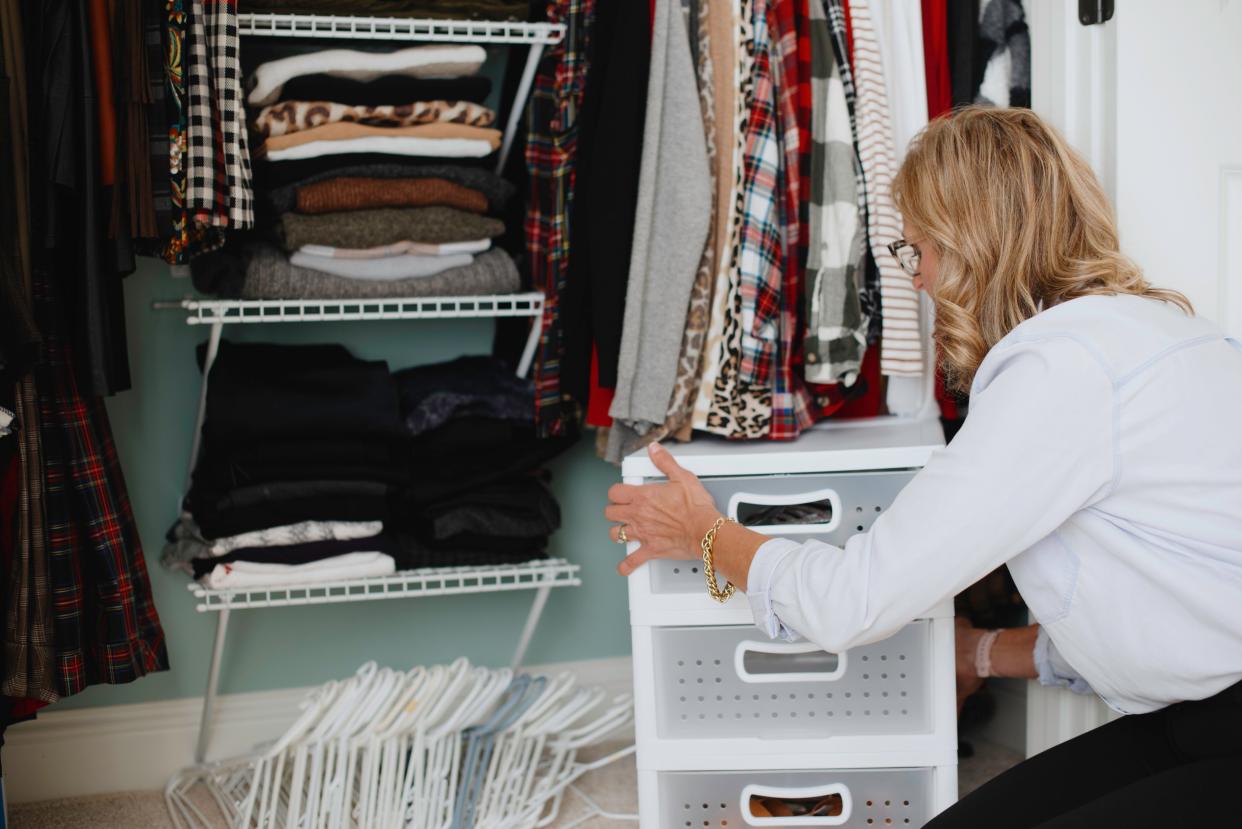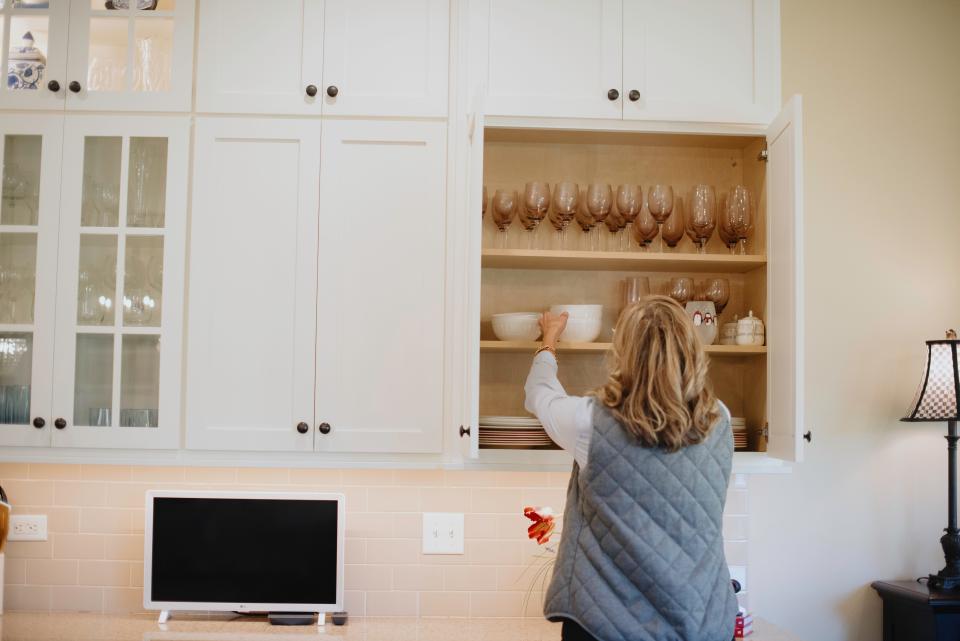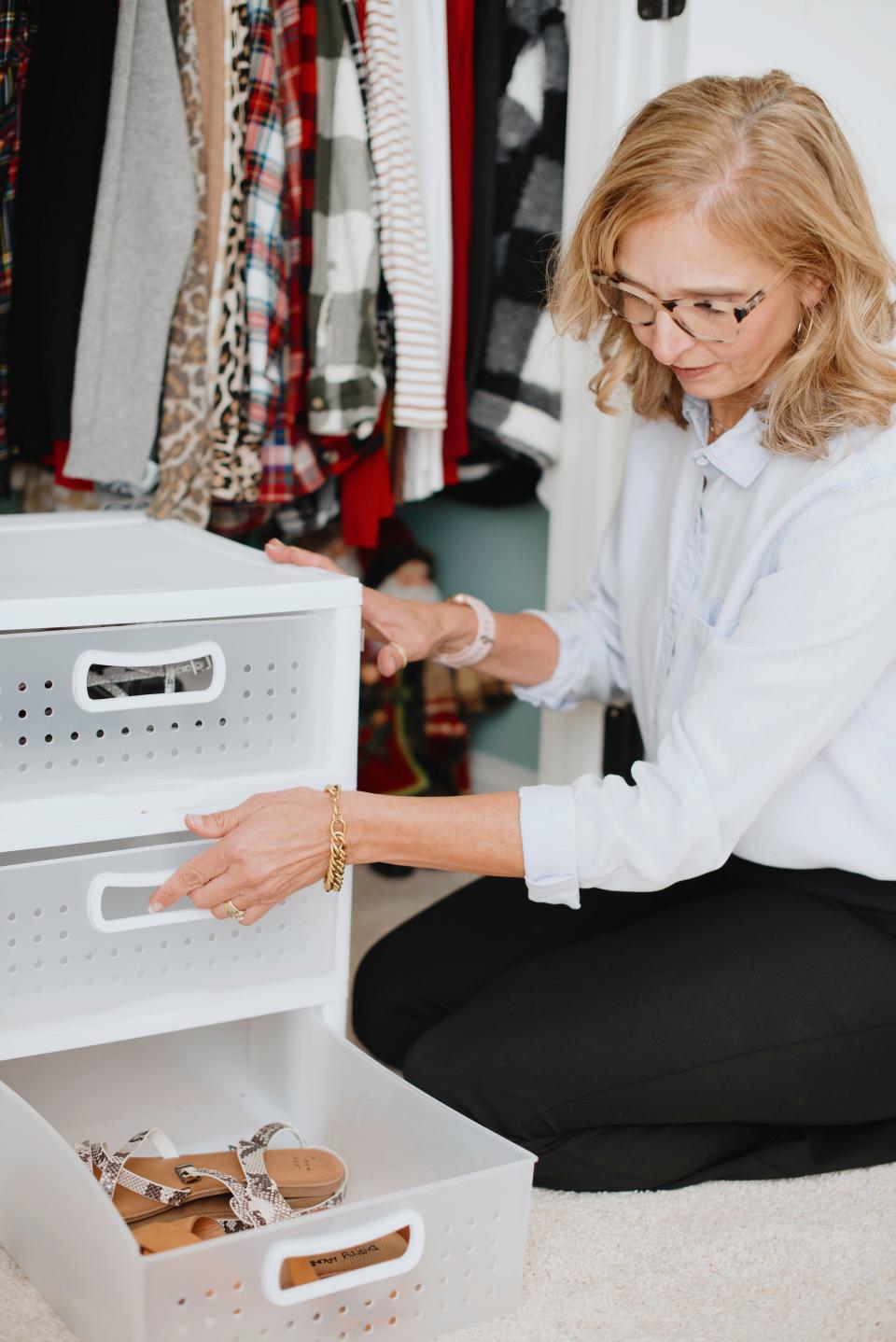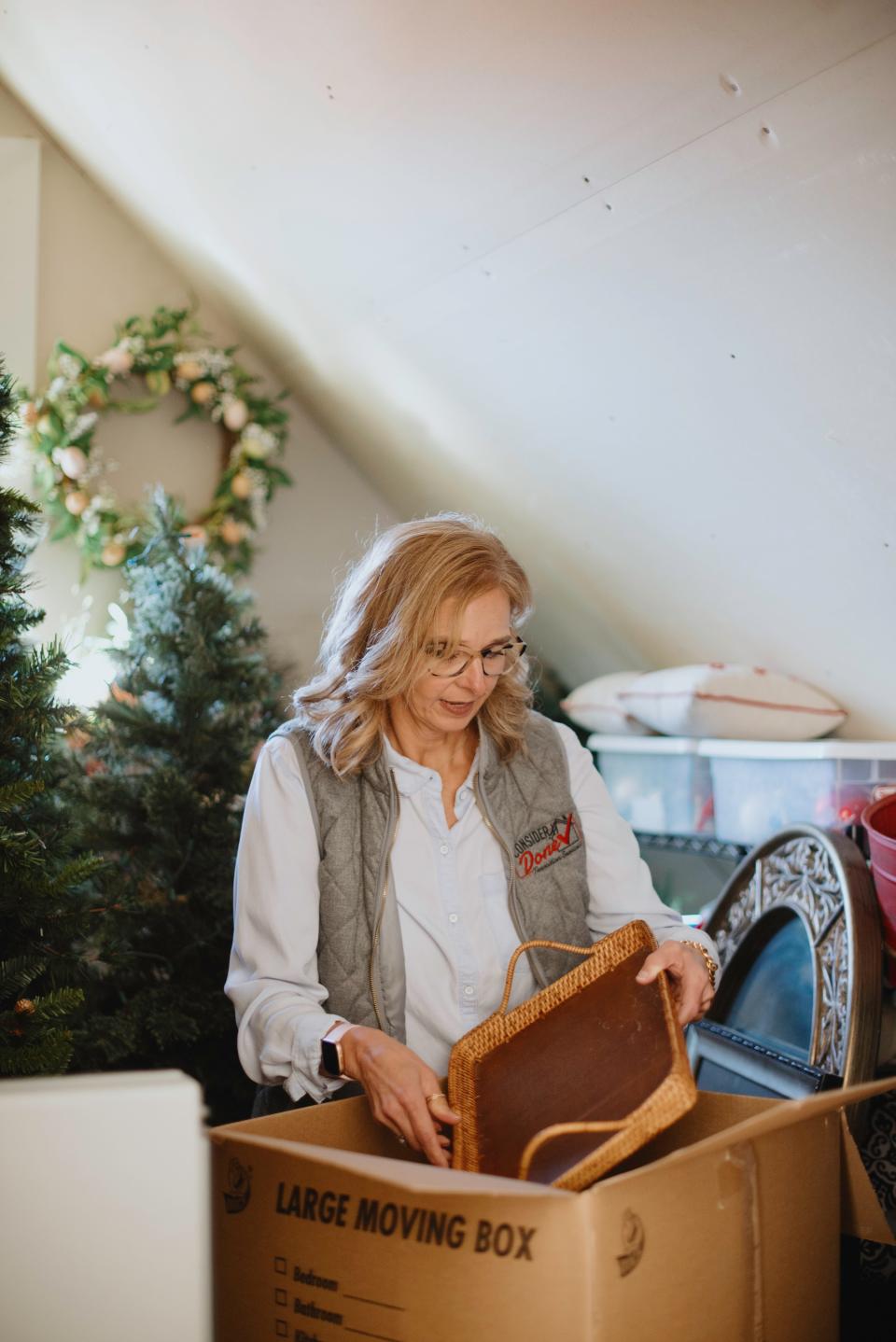You might be cleaning your house wrong. Here's how to declutter

While the common turn of phrase is "spring cleaning," Consider It Done Transition Services owner Cheryl Smith and Garage Organizers owner Brandon Brooks have found the desire to declutter is a fire that burns year-round.
With the holiday season fast approaching, maybe you need to clean the spare guest room for out-of-town visitors. Perhaps you'd like donate half of the items inside your closet in the spirit of goodwill. Or maybe you're simply looking around to see where you'll be able to fit all of the new gifts you're set to receive.
Smith and Brooks have cleaned hundreds of spaces around Indiana through their respective professional cleaning and organizing businesses, and they both emphasize the importance of having a clear, organized space — whether the messy area is as small as your closet or as wide as your garage.
According to Smith, re-envisioning how a space looks in your home can be transformative in more ways than one.
"One lady's goal was to have everything done so she could have a Christmas holiday get-together for all of her friends because she'd never been able to have people over to the house. She did that last Christmas," Smith said. "It was exciting to see her life change just from getting her things organized and downsized.”
Whether you need the extra space for family coming to visit or just think decluttering will help ease some internal stress, these professional organizers have some industry secrets for how to reclaim space in your house and life.
Where does clutter start?
While your first instinct may be to reorganize your entire house, Smith recommends starting with just two or three of the most cluttered areas, such as a bedroom or basement. In her experience, the top three places that clients need the most help in reorganizing are their kitchen, garage and home office.
The kitchen is typically the easiest one to first tackle, Smith noted. Many people keep too many glasses in their cabinets or plastic utensils from fast food restaurants in their drawers.
"I mean, you don't need 50 wine glasses. Some people might, but in reality, you'll never use that many," Smith said. "What we find out is when we purge a kitchen, there's like three shelves that open up and then what happens is what's on the counter now has space to live on a shelf.”

Following the COVID-19 pandemic, many people re-outfitted their homes to include an office space, which is also a magnet for messes to pile up. The common clutter around the house that Smith has seen may be surprising.
“It's paper clutter. People hold on to files for a very long time. You know, how long do you keep your taxes? How long do you keep your bank record?" Smith said. "The other thing — it's not necessarily clutter, but it feels like clutter — is a lot of times, picture albums and pictures take up a lot of space. So we work with people on how get those digital or make books and put them in frames.”
After having spent the last year cleaning out garages throughout southern Indiana, Brooks knows how easy it is to fill a garage. For many people, garages are the catch-all space in the house. If you have to quickly clean your house for visitors, you end up throwing a lot of that clutter in the garage. In the overwhelming haze of moving houses, a lot of half-filled boxes get tossed in the garage and forgotten about.
"Garages are everyone's warehouses," Brooks said. "A lot of our garages that we organize, we open the garage door and it's floor to ceiling stuff."
Organizing your space: the dos and don'ts
A lot of the hard work that comes with decluttering is deciding which items to toss, donate or keep. When Smith works with a client, she provides a little cheat sheet called 10 questions to ask yourself: Do you have more than one? When was the last time you used it? Do you even love it anymore?
When clients use that system, they can break their items into three nice piles: yes to keeping it, no and tossing it, and a maybe pile where they just need a bit more time to consider.
While reorganizing your space, Smith recommends starting with small spaces and getting in your "quick wins." You can start by cleaning out a drawer and cabinet one after the other, so that it doesn't feel like you're tackling an entire room.
"Some people feel so overwhelmed that they don't know where to start. It almost eases them into not even starting. So we like to break it into smaller pieces and really hit those hard parts," Smith said. "Then once they get the hang of it, and we're getting spaces organized, Oh my gosh, they just feel so much better and energized.”
Another tip is to also break up the time that you've spent cleaning a space by setting a fifteen minute timer every hour or day, depending on how long you give yourself to clean a room.
For large spaces, such as garages, Brooks recommends a quick, one day overhaul to get it all out of the way. For the very first step, he recommends taking everything out of the garage and going from there.
"Don't leave things sitting around and just try to organize around them. Clear it out to a blank slate, empty everything out,” Brooks instructed. “I mean, we see clients that have attempted to organize themselves, and it's taken them weeks and they're still not even putting a dent in it is because they've kept everything in a garage and they're surrounded by everything. They're not making any piles, they're just moving stuff around essentially. But when you get everything out, it's the mindset of being able to see empty space and progression.”

If people are expecting to throw a lot of things away, Brooks warns against renting a dumpster because that can cost upward of $500.
"You're better off renting a 26-foot U-Haul for $39.99 a day; it's gonna hold about as much as a dumpster. If you're loading it yourself, you might as well just load it into the box truck and just take it to the dump. That's going to save you like $300," Brooks said.
To make your space better equipped for reorganizing, you also can use floating shelves or storage containers. Brooks said he tells nearly every client to get cheap, waterproof 27-gallon containers because they're stackable and easy to label.
Once an organization system is in place, people have to stick to it. Smith's best piece of advice is something for after you've reorganized your room.
“Number one is to have a box or a bag in every room that you call your donation box. So when you see something that needs to go, you just put it in that box, so that it's ready to go to donation. You know how you look at stuff and you're like, 'Oh, I should donate that.' So having a donation box either in each room or at the door that goes out to your car so you can pick it up," Smith said.
Give the gift of reorganization this season
While many clients want to use their services for their own homes, Smith and Brooks have noticed a trend of gifting organization to other people. Consider It Done Transition Services and Garage Organizers offer the ability for someone to gift their services, with both noting that this has been pretty popular this season.
"It's really something that's in high demand. Everyone has clutter,” Brooks said.

At both services, the organizers offer a free consultation before drawing up a proposal. Consider It Done costs about $55 per hour while a two-car garage can be organized for around $900 to $1,200 at Garage Organizers. Both professional organizer services also have a consignment shop where clients may be able sell their unneeded items, such as furniture, for a small profit.
"I mean what a great gift to give somebody. They can call us and schedule the time to come over and do the work for them," Smith said.
This article originally appeared on The Herald-Times: Tips on how to reorganize your closet, garage, or kitchen

